Markham Pollinator Pathway
Cheryl Lui, Markham
Description, Goals, & Community Impact
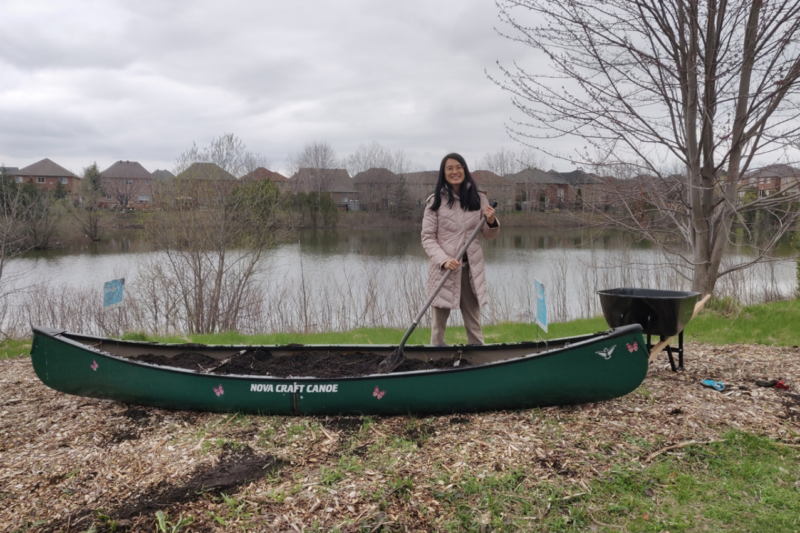
The project’s goal was to create a beautiful community space at Alfred Paterson Pond, in Markham, that will also serve as a protected habitat for beneficial “pollinators” such as bees, butterflies, and hummingbirds. The habitat features plants, native to Ontario, that have been specially selected for their ecological value, either as nectar-rich sources or as food sources for butterfly larvae. Among the most important of these plants are the milkweed species, which are critical to the survival of the now-endangered monarch butterflies. The habitat layout is that of a “pollinator pathway,” centred on a grounded canoe with a lake as its backdrop. As community members take a stroll down this pathway, I hope that they will pause to admire its beauty and grow an appreciation for the role of native plants in our yards and gardens. Compared to lawn grass, native plant gardens better sequester carbon and show more resilience in the face of droughts and floods, ever-increasing perils brought on by climate change.
As community members take a stroll down this pathway, I hope that they will pause to admire its beauty and grow an appreciation for the role of native plants in our yards and gardens.
Highlights, Successes, and Challenges
Obtaining approval from the city of Markham proved to be the most challenging step due to unresponsiveness and delays, some of which may have been worsened by the pandemic. Sourcing the plants was also challenging in that the local native plant nursery was unable to accept new online orders for delivery due to a backlog. Cheryl needed to travel to the nursery to select and purchase around one hundred plants. She doubted for a minute but somehow managed to fit them inside her vehicle to bring home.
Cheryl says she recruited fourteen volunteers amongst family, friends, coworkers, and neighbours to participate in the planting day on May 28th, 2022. “The volunteers planted over one hundred native plants, applied wood chip mulch to help with moisture retention, and set up a perimeter fence to deter rabbits and deer. A metal sign was erected declaring the site a “Monarch Waystation”, a shelter and source of nourishment for monarch butterflies. Throughout the summer, the site was maintained by family members who visited every third or fourth day to water the plants and to remove unwanted weeds”, she adds.
Networking with like-minded community members also led to involvement in two smaller-scale projects. As mentioned, the Alfred Paterson Pond site already featured a grounded canoe. This canoe was originally established in 2018 by volunteers with the David Suzuki Foundation. It, along with several similar canoes dotted across the city, formed the “Markham Butterflyway”. Unfortunately, the canoes have been unmaintained, and invasive weeds had replaced the pollinator plants. So, in collaboration with other community members, the canoes at TooGood Pond and Swan Lake were cleared of weeds and were revitalized with young swamp milkweed plants grown in her garden.
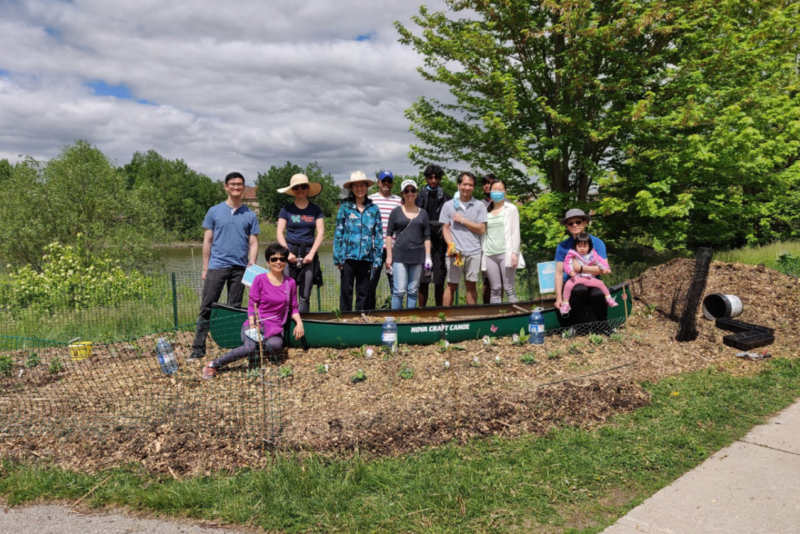
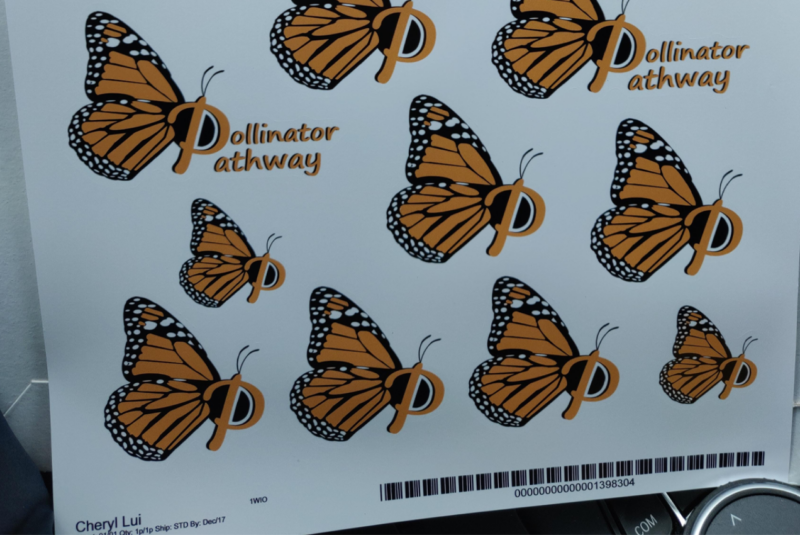
Lessons Learned
“Over the past year, I was able to experience the entire process of creating a novel community space, right from its conceptualization to its establishment. I gained experience working with municipal leaders, planning a public event, and networking with community members”, says Cheryl. The process required patience and the flexibility to pivot plans when things did not go as intended. She gained a greater appreciation for native plants and for the work required to maintain a large-scale community garden, which is vulnerable to pests, changing weather conditions, and even theft (one or two plants appear to have been stolen). Despite the challenges, the experience has been truly rewarding. “I am eager to see how the site grows and prospers and whether the “pollinator pathway” can inspire other community members to establish their native plant habitats”.
Instagram: @markhammonarch
#publicspace #pollinator
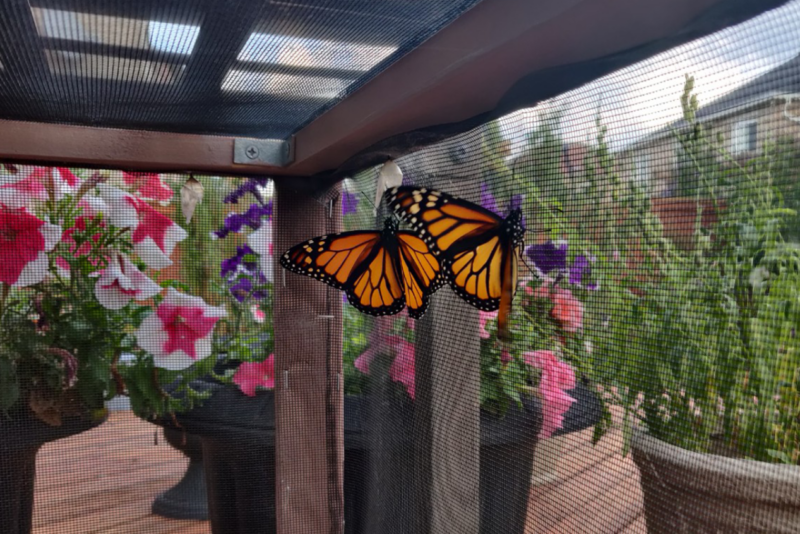
Revitalizing Our Sustenance Project
Erin Hayward, Six Nations of the Grand River Territory
Project Goal
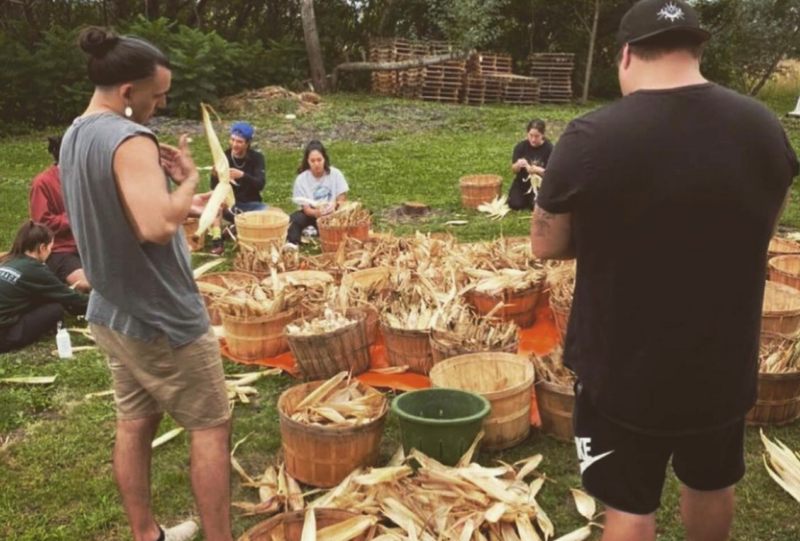
Revitalizing Our Sustenance Project (ROSP) is an Indigenous youth-led program to help provide Indigenous and non-Indigenous youth opportunities to learn about the importance of sustainable agriculture practices while feeding the community! They strive to revitalize their relationships with food, community, and the land.
For the 2021 growing season, the project focused on growing food and providing it to community members in Six Nations of the Grand River Territory. “Briefly, we had to learn the ins and outs of planting, planting methods, and getting water from the pond to the field (Remember the drought in the spring of 2021?). In the summer we had tons of food to share with the community. In the fall, we hosted friends from A7G (Based out of Unceded Algonquin Territory) and friends from the Indigenous Sustenance Reclamation Network (ISRN). We gave them tours of the garden, we harvested corn together, we braided corn together for drying, and we shared a meal”, says Erin.
For the 2022 growing season, Erin attended the Haudenosaunee Seed Keepers School, which was a fantastic opportunity to be surrounded by other Onkwehonwe who all are interested in and doing the work to reclaim, revive, and maintain ancestral and cultural foods into the future. In addition, the Changemaker has been working away at becoming a Certified Seed Collector with the Forest Gene Conservation Association. Erin’s focus for summer 2022 was on developing the relationships she has with the seeds planted in her home garden (some of which she was able to gift to her classmates at the Haudenosaunee Seed School, which felt so good).
“Briefly, we had to learn the ins and outs of planting, planting methods, and getting water from the pond to the field. In the summer we had tons of food to share with the community. In the fall, we hosted friends from A7G (Based out of Unceded Algonquin Territory) and friends from the Indigenous Sustenance Reclamation Network (ISRN). We gave them tours of the garden, we harvested corn together, we braided corn together for drying, and we shared a meal.”
Highlights, Successes, and Challenges
“I have also been learning more about the importance of maintaining native species of trees for agroforestry, an integral aspect of Haudenosaunee food systems. Early settlers cut down almost all of the forests in what we now call Southern Ontario. Straight up, in some places in Southern Ontario, tree cover is less than 5% of what it used to be. So, revitalizing our native food crops, including but not limited to trees like American Chestnut, Butternut, Shagbark Hickory, Pignut Hickory, Pawpaw, etc… is so important for not only fighting against the climate crisis but also providing a food source for generations to come. Haudenosaunee agricultural practices always included what the territory around us had to offer, and so our ancestors used to plant various trees as an agricultural crop purposefully. Maybe in 200 years, those generations who come after me will be able to see those trees I’ve planted and feel loved. I likely won’t live to see the benefits of the seeds I harvest and plant, but they will, and I think that might be one of the biggest lessons I’ve learned over the past few years” shares Erin.
Some challenges that came up were having to slow down and take time to reflect inwards. Summer 2022 was the first time in a while that Erin took time to pay attention to her mind, her emotions, her spirit and her body. She had to learn the very hard lesson of knowing when she has too much on her plate, and how to say no. Through this experience, Erin learned many things about herself that she didn’t know before. Almost like putting puzzle pieces together and having an ah-hah moment. “It’s a little too personal to get into, but I’m learning better to take care of my needs as an individual to be better able to fulfill my responsibilities, and to hopefully live a longer life so I can continue doing this work for as long as I can”, she adds.
Facebook: https://www.facebook.com/revitalizingoursustenance/
Instagram: @revitalizingsustenance
Website: https://www.revitalizingoursustenance.com/
#socialinclusion #foodequity #foodsecurity
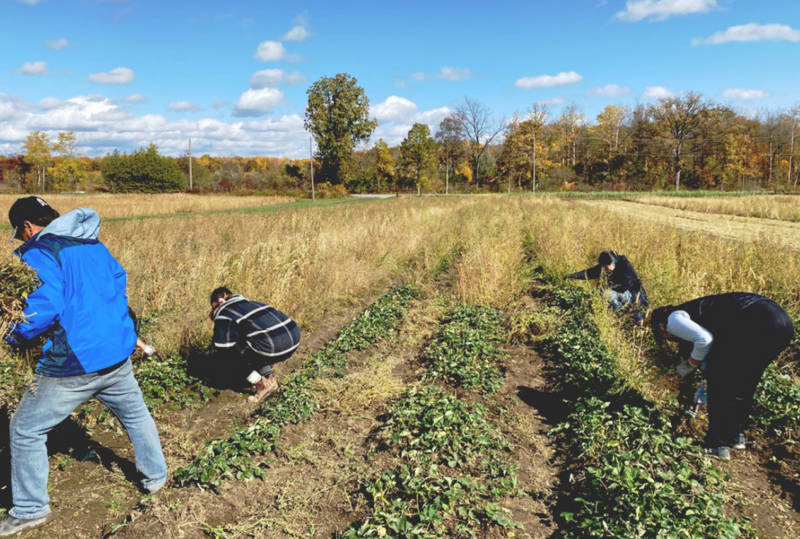
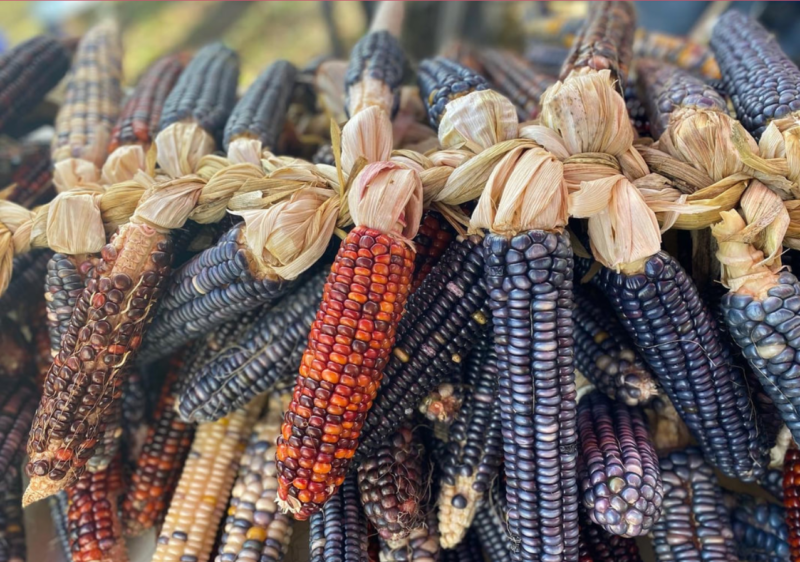
Project READ
Kaitlyn Dwyer, Windsor
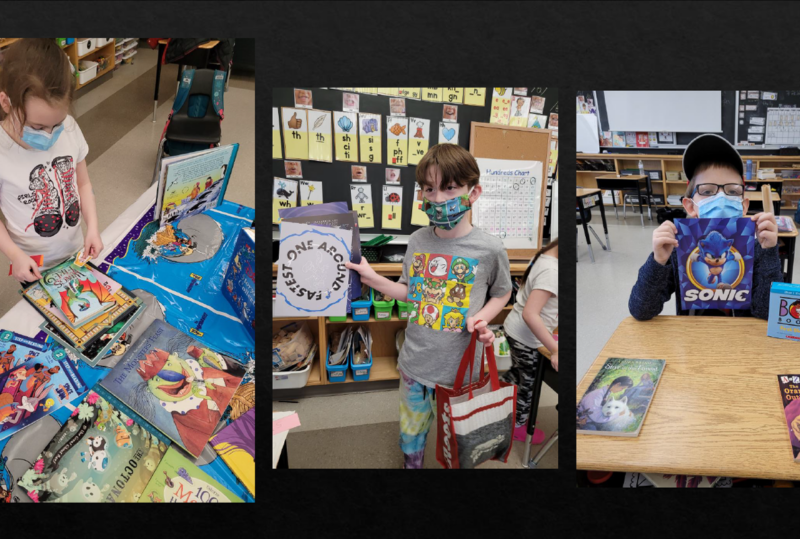
Project READ stands for Rewarding Experiences, Adventures and Discoveries – all things you get from reading. It will give children in low-income areas access to free books through Free Book Fairs held at schools located in areas deemed “at-risk” by the city of Windsor and United Way. My goal is to get more kids to enjoy reading, and this can be accomplished by having books readily available to them on topics they enjoy.
Project Goals
Kaitlyn’s project had one main goal, which was to get children to enjoy reading. Over the year, Kaitlyn was able to break down her project into much smaller goals that will, over time make her large goal a reality.
Highlights, Successes, & Challenges
Kaitlyn held a Free Book Fair at seven local schools, all in areas of the city deemed “at-risk. In total, 121 students could take home 6-7 free books each, in addition to school supplies, posters and bookmarks. They could enjoy a real book fair experience without cost to their families. The leaders who held each fair did a phenomenal job delivering such an experience!
In addition, the Windsor-based changemaker could order not the intended goal of three Little Free Library kits, but four instead! The libraries are just about ready to find their forever home In Ford City, East Windsor, and Glengarry neighbourhoods. The fourth library will replace one in South Walkerville that collapsed and will honour two former teachers at John Campbell School who impacted the lives of just about every child who grew up in the neighbourhood. Project READ was also able to gift a large donation of books to the East Windsor Grandview Youth Center, as well as fill existing Little Free Libraries throughout the city.
This project assisted local youth in earning volunteer hours for high school and encouraged community participation by holding book donation drives. Every book donated earned a ballot for a draw, and three locals won a $50 Indigo gift card to buy new books for themselves! A small “thank you” gift was also awarded to those who donated books.
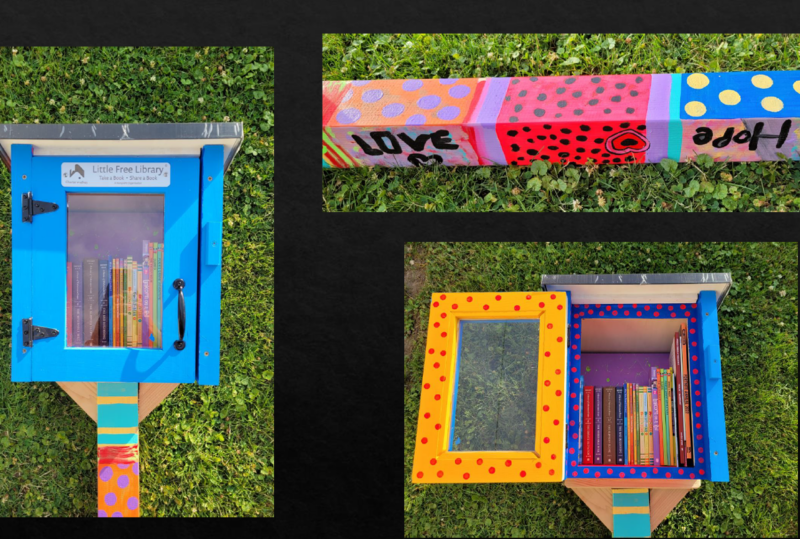
Lessons Learned
“I am so proud of everything I have been able to accomplish this year! With a few setbacks at the beginning with finding storage and worrying about COVID-19 restrictions, I learned much about persevering. I learned how to manoeuvre the world of technology while learning to use Zoom and practicing my PowerPoint skills; I loved being able to connect with other Changemakers and learn from them! My favourite part of the delivery of my project was hosting the seven Free Book Fairs; the feedback from students, parents and student leaders was all positive and made me so happy and proud that I could provide these students with such an opportunity. Overall, I think several students in Windsor have taken on a new love of reading! A big thank you to everyone at OCC for giving me this AMAZING opportunity to make this possible!” shares Kaitlyn proudly.
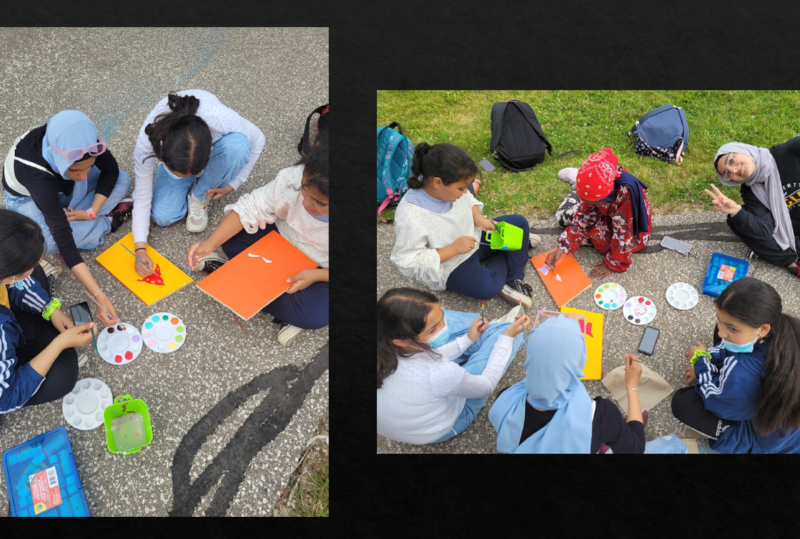
My favourite part of the delivery of my project was hosting the seven Free Book Fairs; the feedback from students, parents and student leaders was all positive and made me so happy and proud that I could provide these students with such an opportunity.
Twitter: @MissKaitlyn5
#socialinclusion #booksforkids
Activate Tanglewood
Mitchell House, Ottawa
Activate Tanglewood was focused on increasing the use of active means of transportation within the Tanglewood community, including walking, running, and cycling, while reducing the use of cars to meet the community’s needs. Various intersections on these corridors are dangerous intersections that feature within the top-10 list of intersections with collisions. There are also no schools within Tanglewood, which means that children will need to be driven by bus or car rather than walk through unsafe street infrastructure to get to school..
Project Goals
The goals of the project were to encourage interest amongst the community to participate in active transportation to get to where they need to be, foster an interest amongst the community towards better street design, and build capacity amongst the community as to their ability to use active means of transportation to meet their daily needs. A long-term goal is to generate interest amongst other communities within Ottawa to how streets can be redesigned to accommodate active transportation better to meet their daily needs.
Highlights, Successes, & Challenges
The impact on the community has been limited by several challenges that Mitchell encountered throughout his project, including the retirement of their local councillor, their community association president and members of the board, and local events such as the downtown occupation in late January and severe power outage in May that diverted attention amongst residents and political leaders to other matters. Given the municipal election, Mitchell reached out to the various candidates to share his project to gauge their level of support and also partnered with a bike advocacy group to partner on the delivery of some of the planned advocacy initiatives that are needed to support the project.
Mitchell also set up a meeting to share his project with the frontrunner to be the new councillor for his Ward to discuss his project further and help move forward on activities that would support the initiative. He is an active participant in community safety initiatives. He participates in various sports and outdoor activities within the community, making him an ideal role model for the initiative. Mitchell looks forward to introducing the project and moving forward on the initiative with a new, progressive council.
Lessons Learned
Throughout the project, Mitchel has recognized the importance of delegating tasks and developing a steering committee for the project. Many of the activities he was looking to pursue required the assistance of others, and it was essential to identify the items he was best suited to lead and where there might be others who may be better suited for the task. “Each person you engage with comes equipped with a certain skill set, and it is important to nurture that skillset to achieve the goals of the project”, he says.
“In addition to identifying the skills that your team brings to the project: it is also important to ensure that there is a team of people who help make decisions around the direction that the project should take. Many volunteers have previous experience working within the community and will know the kinds of activities that will lead to success or greater impact. This more senior group of volunteers will be an important part of the decision-making process and help generate good ideas and lead to a more succinct pathway for the project to unfold” he reflects.
#activetransit #mobility